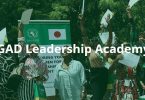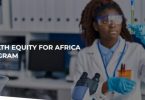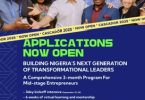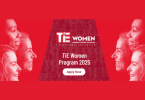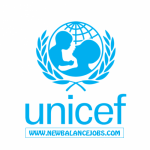
United Nations International Children's Emergency Fund (UNICEF)
United Nations International Children’s Emergency Fund (UNICEF) is hiring to fill the position of National Individual Contractor – Gender Equality. Please make sure you read the job requirements before applying for this position.
United Nations International Children’s Emergency Fund (UNICEF) works in some of the world’s toughest places, to reach the world’s most disadvantaged children. To save their lives. To defend their rights. To help them fulfill their potential. Across 190 countries and territories, we work for every child, everywhere, every day, to build a better world for everyone.
We are recruiting to fill the position of:
Job Title: National Individual Contractor – Gender Equality
Job No: 545242
Location: Bauchi, Nigeria
Contract Type: Consultancy
Level: Consultancy
Categories: Gender Equality
For every child, Good Health
- Nigeria’s rates of maternal, infant, and under-five mortality and morbidity are among the highest in the world, with poorer health indicators in the northern states. According to the 2018 NDHS, the MMR is estimated at 512 per 100,000 live births, the IMR and U5MR were 67 and 132 per 1,000 live births, respectively, although 2019 data using the inter-agency model found the U5MR to be 1171.
- Within the country, U5MR ranges from 187 per 1,000 live births in North West Nigeria to 134 in North East and 95 for North Central, compared to rates for South East, South South and South West of 75, 73, and 62 respectively.
- About 858,000 children under the age of five die each year in Nigeria, second only to India.
- Some 270,000 of these deaths are estimated to occur in the newborn period, which is the second highest globally and about 11 per cent of the total global burden of neonatal mortality.
- Bauchi State, located in North-East Nigeria, ranks amongst the ten poorest performing states in reducing under-5 mortality rate (U5MR) in Nigeria.
- The State has a population of 7,194,512 people, who live in sparsely populated settlements spread over a landmass of 49,119 square kilometers.
- The State has a predominantly young population with over 50 per cent estimated below the age of 15. According to the 2018 National Demographic Health Survey, the U5MR is 147 deaths per 1000 live births, much higher than the national average of 132 deaths per 1000 live births. Bauchi ranked 7th in under-five deaths in Nigeria in 2018, contributing 4.5 per cent (41,072) of the 913,140 projected under-five deaths that year.
- Twenty-five per cent of all under-five deaths in Bauchi occur in the first 28 days of life.
How Can You Make a Difference?
- The Gender equality individual contractor will ensure the successful mainstreaming of gender equality into Bauchi primary health care systems, programs and results for women and children through ongoing analyses, review, recommendation, redesign, and implementation of appropriate interventions and approaches.
- He/she will lead the introduction of gender equality results, activities, operations, and mechanisms within Bauchi PHC MOU workplans, state agencies (BSPHCDA), health facility and community health programs for equitable health and survival of children in Bauchi State.
Major Tasks to be Accomplished
- Priority areas of work to be supported for the UNICEF and Global Affairs Canada contribution to the PHC MOU (Reviews, analyses, policy, advocacy, development of tools and guidelines, training, data collection tools, supportive supervision, documentation) including but not limited to the following:
MOU Partnership:
- Work with the SMOH, SPHCDA, PHC-MOU partners and related agencies to support development and implementation of gender sensitive annual MOU workplans, ensuring the review and update, integration, and delivery of gender transformative outputs in the workplans.
- Support SPHCDA, PHC- MOU partners, and related agencies on gender assessment and provision of evidence-based analyses, and policy briefs for advocacy and resource allocation for gender equality activities within PHC- MOU workplans.
- Support SPHCDA, PHC- MOU partners, and related agencies by providing technical assistance for strengthening the M&E systems plans which expound measurement framework with indicators, results and data tools that are gender responsive and monitor and track gender responsiveness in the delivery of RMNCAHN services.
- Support the articulation, documentation, and showcase of gender equality results of PHC interventions and PHC-MOU-supported programs.
State and LGAs:
- Support the strengthening of state and agency capacities for mainstreaming of gender equality into the health system, institutions, and operations, including the establishment of dedicated resources – functional GE desk, personnel, and operational funds – in SMOH and SPHCDA.
- Provide TA to SPHCDA for capacity building exercises for policy makers, and program managers for gender equality in PHC systems, including the development of capacity building plans, gender toolkits, guidelines, manuals and workplans for PHC and RMNCAH.
- Support the articulation of strategic gender equality results within state health policies, strategies, and instruments.
- Support the synthesis and analysis of programmatic, social, and gender results at policy, institutional, health facility and community levels.
- Work with the SMOH, and SPHCDA to support planning, implementation, and review of M&E frameworks for PHC systems to include GE results, indicators, tracking and reporting mechanisms.
- Contribute to the maintenance and update of state dashboards and visual data platforms for tracking social and gender determinants of health in Bauchi.
- Support gender proofing exercises through ongoing assessment of gender relevance and gender impact assessments of policies, planning and service delivery in Bauchi State.
- Support knowledge sharing/dissemination exercises for gender results in SRH and RMNCAH services.
- Support state to write timely projects reports.
Health Facilities:
- Support the design and implementation of activities designed for improvement of quality and responsiveness of health services in the HFs to meet needs of women, girl, men, and boys with the state technical units.
- Support the development of training and orientation programs of front-line health workers for the delivery of respectful services to women, adolescents and girls using standard guidelines on GE in PHC and RMNCAH.
- Support the generation and analyses of sex disaggregated MNCH service data at health facilities.
- Work with M&E Consultants and state M&E Officers to train data officers on collection analyses and reporting of sex disaggregated data.
Communities:
- Support the improve women’s knowledge of SRH, RMNCAH, risks, available interventions, and services.
- Support communities in documentation and review of norms, practices and behaviors that hinder full enjoyment of health (including reproductive health, MNCH), and rights by women and adolescent girls.
- Support the strengthening, establishment, and coordination of community structures (WDCs, VDCs, women support groups, religious and traditional bodies etc.) for effective demand and uptake of health services in focal wards and settlements of Bauchi.
- Support the mobilization of communities and households for improved utilization of SRH and RMNCAH services.
- Strengthen women’s participation in decision making in households and in public on issues pertaining to their own health, and health services.
- Support knowledge building exercises on addressing gender equality and PHC, including the conduct of social research exercises and implementation research interventions in communities.
- Support documentation of learnings from supported interventions in the communities.
To Qualify as an Advocate for Every Child You Will Have
- A First University Degree in Social Science, Community Development, Gender Studies /or related technical field.
- Post graduate qualification in Gender Studies is an advantage.
- Five years’ experience working on Gender equality, health, and community development projects
- Demonstrated experience in working on gender and social development programs in Northern Nigeria.
- Demonstrated ability to work in a multi-cultural environment and establish harmonious and effective working relationships, both within and outside the organization.
- Knowledge of and ability to conduct social research interventions.
- Knowledge of community health systems.
- Ability to understand and analyze health data
- Ability to make timely and quality judgements and decisions and a very good training skill.
- Computer skills, including internet navigation and various office applications.
- Willingness to travel to remote regions of the country.
- Initiative, passion and commitment to UNICEF’s mission and professional values
- Fluency in English is required. Knowledge of a local language is an asset.
For Every Child, you Demonstrate
- UNICEF’s values of Care, Respect, Integrity, Trust, and Accountability (CRITA) and core competencies in Communication, Working with People and Drive for Results.
Application Closing Date
20th October, 2021; W. Central Africa Standard Time.
Method of Application
Interested and qualified candidates should:
Click here to apply online
Remarks
- Only shortlisted candidates will be contacted and advance to the next stage of the selection process.
- To view our competency framework, please visit here – PDF.
- Click here to learn more about UNICEF’s values and competencies.
- UNICEF is committed to diversity and inclusion within its workforce, and encourages all candidates, irrespective of gender, nationality, religious and ethnic backgrounds, including persons living with disabilities, to apply to become a part of the organization.
- UNICEF has a zero-tolerance policy on conduct that is incompatible with the aims and objectives of the United Nations and UNICEF, including sexual exploitation and abuse, sexual harassment, abuse of authority and discrimination.
- UNICEF also adheres to strict child safeguarding principles. All selected candidates will be expected to adhere to these standards and principles and will therefore undergo rigorous reference and background checks.
- Background checks will include the verification of academic credential(s) and employment history.
- Selected candidates may be required to provide additional information to conduct a background check.
To apply for this job please visit jobs.unicef.org.


